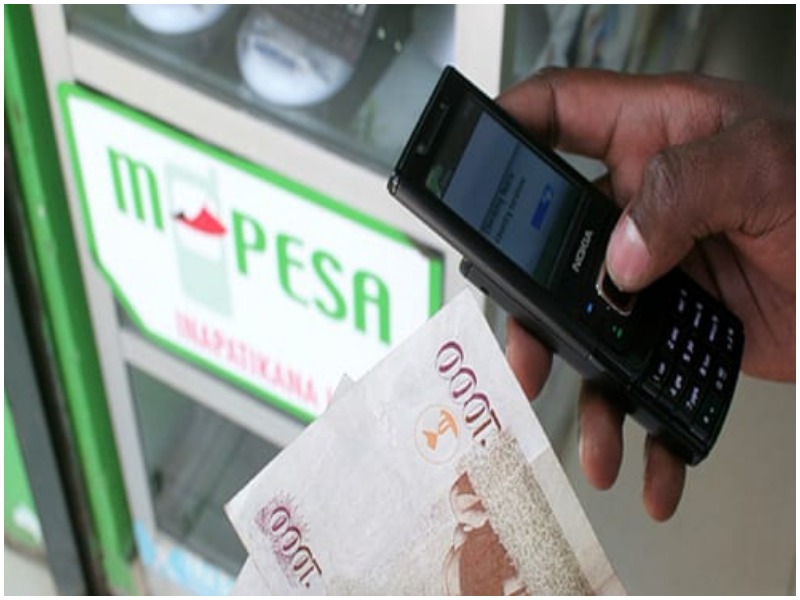Effective today, people who use the mobile money payment service, M-Pesa owned by telecommunication service provider, Safaricom Plc, will be able to send any amount that is below Kshs 1,000 for free over the next three months.
This was following a meeting that was held yesterday between Safaricom and the governor of Central Bank of Kenya (CBK), Dr Patrick Njoroge, as well, as other industry players in which they all discussed ways around the evolving situation around the corona virus, which has recorded three cases in Kenya since March 13th, 2020, from a lady who came from the United States of America (U.S.A.) via London, the capital city of the United Kingdom.
“In the meeting it was agreed that all person-to person transactions below Kshs 1,000 shall be free over the next 90 days. CBK has also approved the increase of M-Pesa transaction limits from Kshs 70,000 to Kshs 150,000 that are important for Small and Medium Enterprises (SME’s). Kenyan citizens will also have their M-Pesa transaction limits raised from the current limit of Kshs 140,000 to Kshs 300,000,” states a statement from Safaricom.
Launched in 2007 by its largest shareholder, Vodacom, data from the Communications Authority of Kenya states that there were 575,660,251 M-Pesa transactions that were carried out between July and September 2018, with 24. 2 million active subscriptions from the users within this period.
Overall, there were 730.2 million worth of mobile money transactions within the same period, from other platforms other than M-Pesa, such as Airtel Money, Equitel Money, T-Kash and Mobile Pay.
M-Pesa has been enabled by the use of agents who were 29.785 by the same period, that is July and September 2018. Another factor is the use of bandwidth and fibre optic cables being cited as reasons for its foothold.
The success of M-Pesa in Kenya has seen other countries to try and replicate its success in their own nations.
These include Mozambique in 2012, India in 2013, the Democratic Republic of Congo in 2012, Romania in 2014 as well as Albania in 2014, notes Vodacom.
According to the 2019 Safaricom Sustainability Business report, Safaricom has a fibre optic footprint of 6,700 kilometres as of 2017, 3,464 more kilometres than it had in 2016; and its second generation (2G) cellular network is the one that is mostly used by 96 percent of the population, followed by 3G at 97 percent.
Another infrastructure that has been of use, are the 78 base transceiver stations for Safaricom commissioned by the Communications Authority, requisite to facilitate the network between M-Pesa agents and users.
The meeting between Safaricom, CBK and other industry players, follows a directive by President Uhuru Kenyatta on March 15th 2020, that in order to avoid risk of transmission of Corona Virus, there should be less use of cash transactions and more emphasis on cashless transactions, “such as mobile money and credit cards.”
The President’s directive echoes that similar to the World Health Organisation ( WHO ), which has recently advised the importance of washing hands after handling bank notes to reduce the risk of transmission of corona virus. The symptoms of the virus include coughing, fever and breathing difficulties.
Further to this, President Kenyatta emphasised the directive of self-quarantine for either Kenyan citizens or foreigners who have a valid permit in a government facility and is to remain in effect in the next 30 days, or as determined by the National Emergency Response Committee.
“ Safaricom, in conjunction with the state, will provide a call center and integrate a toll-free line 719, which has been set up by the National Emergency Response Committee on Corona Virus to support Kenyans in understanding how to prevent and manage suspected cases. We have also interconnected other networks to ensure that their subscribers can access the call centre,” reads the statement by the Chairman of Safaricom Plc’s, Mr Michael Joseph.
In other parts of the world such as the United States of America (U.S.A) and China, where corona virus originated from since last December, there is also emphasis on using cashless money.
The U.S.A.’s Federal Reserve Bank, the equivalent of the CBK, has introduced a minimum of a ten day holding period of bills coming from Asia and Europe, up from the previous five, the policy which had started back on February 21st 2020. 80 percent of the American population, states research from Bain, uses credit cards.
This means that the Federal Reserve quarantines the physical American dollars that are coming from Asia, within a ten day period, processes and then releases the money supply to the financial system.
The U.S. currency is the most distributed currency in the world, with $ 1.75 trillion of it in cash being distributed globally, notes Reuters.
According to a 2014 study titled “Dirty Money” undertaken by New York University, it found that over 3,000 kinds of bacteria, such as that which causes pneumonia, can live on American currency and the longer it takes, the more likely it will be transmitted.
Meanwhile, in China where 80 percent of the population uses mobile payments, the government has introduced sterilization of physical money, as a way of curbing spread of the Wuhan corona virus, states CNBC. This is by either through sterilization by ultra violet light or just destroying the money.
According to Cgap, there were more than 500 million Chinese people who used mobile money payments by the year 2016, through such apps such as Alipay and WeChatPay.
In South Korea, the situation is no different. Its central bank, Bank of Korea has also resorted to “high-heating” its currency notes, known as the Won, through various methods such as through micro-waving, to curb the chances of infection, states the International Business Times (IBT).

